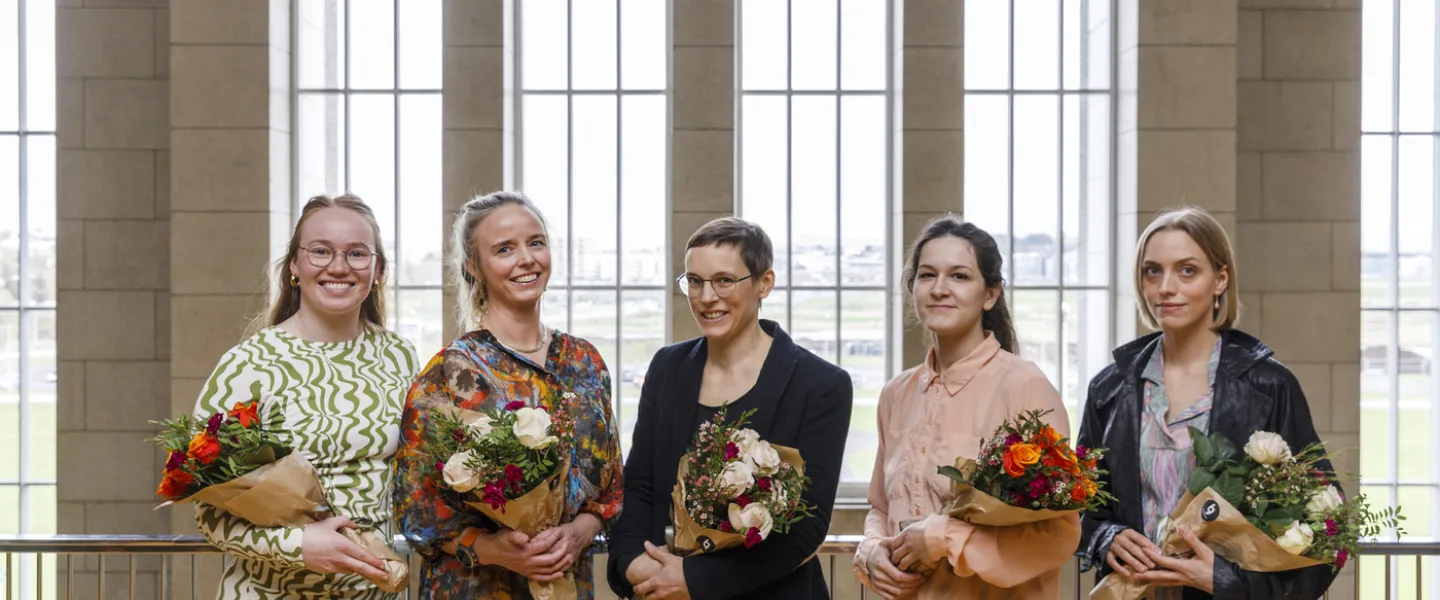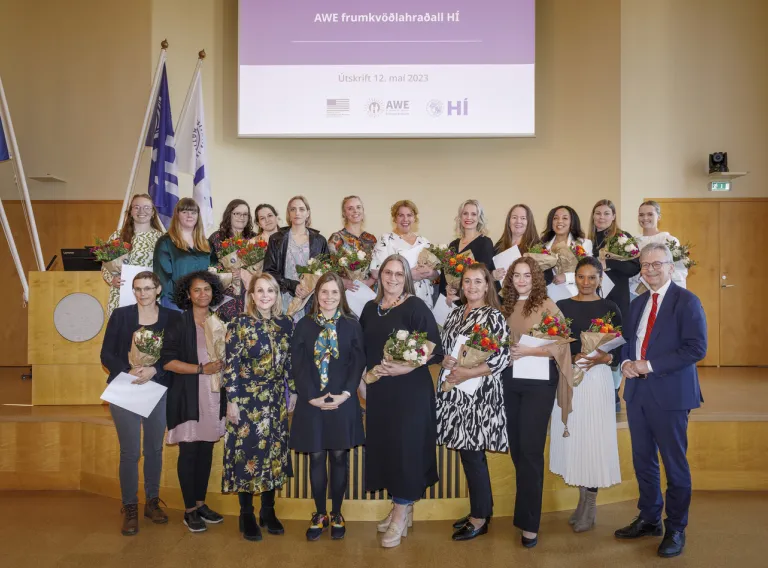
Business plans based on taste bud training for children, software solutions for services for disabled children, and drone technology for researching the ground and undeveloped areas were selected as the top three in this year's Academy for Woman Entrepreneurs (AWE), which ended this Friday.
AWE is an innovation accelerator organised by the University of Iceland in partnership with the American Embassy; the US government offers this programme around the world. The goal is to support women to develop their companies and business ideas and increase female representation within the entrepreneurial and innovation sector. This was the third time that AWE has been held in Iceland.
Over twenty women were selected to take part in the programme, which began in late February and lasted almost 12 weeks. All participants completed Dreambuilder, an online training programme organised by Arizona State University, as well as workshops organised by the University of Iceland. Around 40 women with extensive experience in business, as well as former AWE participants, were involved to offer support to this year's participants. The women have also been mentored by Fida Abu Libdeh, CEO and co-founder of GeoSilica, and Sandra Mjöll Jónsdóttir Buch, Director of the UI Science Institute.
The graduation and award ceremony took place in the University of Iceland Ceremonial Hall on Friday, attended by Prime Minister Katrín Jakobsdóttir, the United States ambassador to Iceland Carrin F. Patman, Rector of the University of Iceland Jón Atli Benediktsson, and the AWE evaluation committee.
Prizes were awarded in individual and team categories, best video pitch, and most progress
Twenty participants graduated from the programme, several of whom received prizes and acknowledgement for their work. The first prize for best business plan, ISK 700,000, went to the project Taste Bud Training. The woman behind the project is Anna Sigríður Ólafsdóttir. Taste bud training is a new approach to food sensitivity in children, based on using all the senses, play and home assignments to experience and learn to enjoy a varied diet. Second prize, ISK 500,000, went to Elísabet Ásta Ólafsdóttir's project Betty. Betty is a software solution designed to improve the efficiency and consistency of services to disabled children. The winner of third prize, ISK 300,000, was Morgane Priet-Maheó, for a project based on using drone technology to research undeveloped areas.
A special prize was awarded for "best pitch", meaning a very brief presentation of a project after submitting a business plan. This prize, ISK 300,000, went to Sigríður Birna Matthíasdóttir for her project e-toile, which is a platform for digital fashion. Finally, Jorika Trundóva was awarded the prize for most progress, ISK 200,000, for her project, Pláneta. The project is about products that encourage learning through exploration and creativity.
